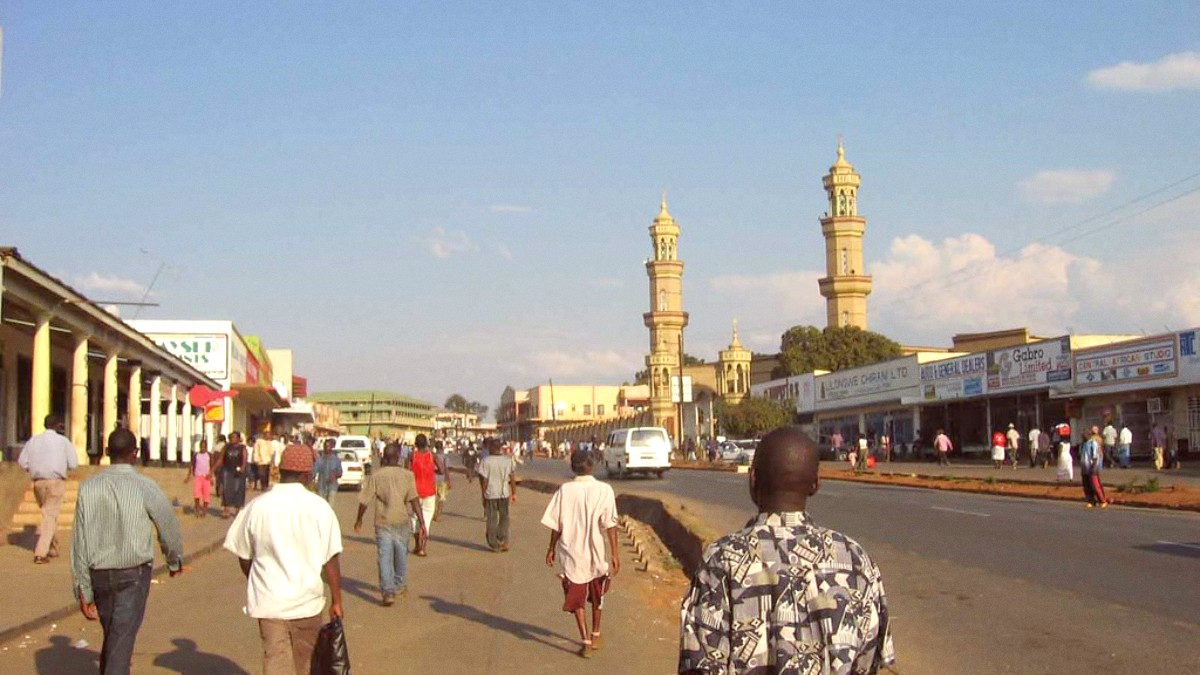
Malawi
Morning (9:00 AM - 1:00 PM): Begin with a visit to the Lilongwe Wildlife Centre. This sanctuary offers a peaceful walk among rehabilitated animals and shares conservation efforts.
Lunch (1:00 PM - 2:00 PM): Enjoy lunch at a mid-range restaurant near the City Centre or in Area 47, offering local or international cuisine.
Extend your stay for cultural and natural exploration.
A weekend allows for a deep dive into Lilongwe's culture and some nearby nature. Day 1: Arrive and explore Lilongwe Wildlife Centre. Day 2: Immerse in culture at Old Town Market and Kumbali Cultural Village. Day 3: A day trip to Kuti Wildlife Reserve or Senga Bay.
A week allows you to explore Lilongwe and venture to a major highlight like Lake Malawi or a safari park. Days 1-2: Lilongwe & surrounds (Wildlife Centre, Old Town, Dedza). Days 3-4: Lake Malawi relaxation (Senga Bay/Cape Maclear). Days 5-6: Safari adventure (Liwonde/Majete). Day 7: Return to Lilongwe for departure.
Two weeks presents a comprehensive journey covering both southern and northern Malawi. Week 1: Central & Southern Malawi (Lilongwe, Lake Malawi, safari, Blantyre). Week 2: Northern Malawi (Mount Mulanje/Thyolo, Mzuzu/Northern Lake/Nyika, Livingstonia). Return to Lilongwe for departure.
For stays lasting weeks or months, consider a different approach to accommodation and activities. Rent an apartment or house in residential areas like Area 10, Area 43, or Area 47. Engage in volunteer work or take Chichewa language lessons. Use Lilongwe as a base for extensive exploration of surrounding districts.
These itineraries offer flexible frameworks. Personalize your journey based on individual interests, budget, and desired pace.
Adapt to your preferences for culture, adventure, food, or family focus.
Choose options aligning with backpacker, mid-range, or luxury travel styles.
Consider wet vs. Dry season benefits for activities and atmosphere.
Tailor your itinerary to specific interests: history, food, adventure, or family.
Begin in Lilongwe with the Kamuzu Mausoleum and Old Town history. The Chongoni Rock Art Area presents ancient rock paintings and Chewa heritage. Livingstonia Mission in Northern Malawi is a rich past with stunning views. Visit Zomba, the old colonial capital, to explore its historical buildings and Zomba Plateau.
Embark on a self-guided food tour at Lilongwe Old Town Market. Inquire at a guesthouse or Kumbali Cultural Village for an informal cooking demonstration of Malawian cuisine. Explore local eateries (Bwalos) in Lilongwe to sample various Nsima and Chambo preparations. Visit a local farm near Lilongwe to learn about food production.
Explore walking trails at Lilongwe Wildlife Centre. Hike and birdwatch in Dzalanyama Forest Reserve. Experience thrilling game drives and boat safaris in Liwonde/Majete. For serious hikers, undertake a multi-day trek up Mount Mulanje. Head to Cape Maclear or Nkhata Bay for snorkeling, diving, and kayaking on Lake Malawi.
The Lilongwe Wildlife Centre offers a wonderful experience for kids. Kuti Wildlife Reserve presents a gentle safari. Senga Bay on Lake Malawi provides easy beach access, safe swimming, and opportunities for sand play. Choose accommodations with pools and spacious grounds, offering amenities for children.
Explore Lilongwe Craft Market, observing artisans and purchasing unique items.
Visit Gallery Crossroads for a curated selection of contemporary Malawian art.
Discover colonial buildings in Old Town Lilongwe and Zomba, reflecting historical influences.
Your budget significantly influences your travel style and itinerary in Malawi.
For accommodation, stay at hostels or camp at designated sites like Mabuya Camp or Annie's Lodge. Utilize minibuses (Matolas) for all inter-city and intra-city travel; they are the most economical choice. Eat local food from markets and street vendors, and self-cater if your accommodation has kitchen facilities.
Stay at comfortable guesthouses or mid-range hotels, offering private rooms and a balance of comfort and amenities. Use a mix of minibuses for longer distances and private taxis for convenience within cities or at night. Dine at a mix of local eateries and mid-range restaurants, allowing for some international cuisine. Include a safari day trip or a short overnight safari experience, and a visit to Lake Malawi with some leisure activities.
Each season in Malawi offers unique experiences that can shape your itinerary.
For luxury, opt for high-end hotels or lodges. These include The President Hotel, Kumbali Country Lodge, and exclusive safari lodges. Arrange private transfers or rent a car with a driver for all journeys. Consider domestic flights for long distances. Focus on fine dining, curated cultural experiences, and exclusive excursions. Prioritize comfort, convenience, and bespoke experiences.
Travel during shoulder season (April, September, or October) for better prices and fewer crowds. Secure better deals by booking major tours or safaris in advance. Combine public transport with occasional taxi use for cost savings. Some tour operators offer bundled packages that can present better value than booking everything separately.
Research major national holidays (e.g., Independence Day on July 6) to coincide your visit with local celebrations.
The Lake of Stars Festival (music and arts, usually on Lake Malawi) is an outstanding event, often drawing visitors. Check its annual dates.